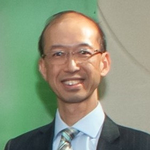- Global Environmental Issues
Maria Francesch-HuidobroDUE TO SCHEDULING ISSUE, THIS SESSION IS MERGED WITH SESSION 6 on 25 JULY 2020
Since the Industrial Revolution, the world’s reliance on fossil fuels has resulted in the accumulation of CO2 and other greenhouse gases in the atmosphere. This coupled with other human activities had led to further erosion of the environment.
Dr. Maria Francesch-Huidobro will shed light on the global environmental issues the word is facing to day, and discuss how we should contribute to mitigating them.
- Environmental Impact, Site Assessment, and Risk Assessment
Freeman CheungEnvironmental assessment is the assessment of the positive and negative environmental consequences of a plan, policy, programme, or project to ensure that decision makers consider the environmental impacts when deciding whether or not to proceed with a project.
Mr. Freeman Cheung will share with us the fundamentals of the environmental impact assessment, site assessment, and risk assessment processes.
- Environmental Management Systems
Chung Ming ChoiWhen the phrase "Environmental Management System" is mentioned, most people immediately think of ISO 14001. But what does it really mean to have a sound Environmental Management System? How does it impact the operation of a company? What benefits does it bring to a business?
These are some of the questions Ir. CM Choi will discuss while sharing his many years of practical experience.
- Sustainability and Corporate Environmental Reporting
Bonnie YipAcross the world, more and more companies are reporting on their environmental performance. In Hong Kong, The Stock Exchange of Hong Kong implemented the Environmental, Social and Governance (ESG) Reporting Guide (the ESG Guide) in 2012 and has been updating its requirements over the years in response to increasing attention from the community.
While various ESG / sustainability reporting frameworks aim to raise awareness and encourage listed companies to begin reporting:
- Which environmental aspects are we looking into?
- For management, what are the implications and difficulties to overcome?
- What are the international trends in sustainability reporting and management?
Ms. Bonnie Yip will share with us her experiences from sustainability consultancy.
- Environmental Public Policy Development and Implementation
Maria Francesch-HuidobroPublic policy making is a dynamic, complex, and interactive process through which public problems are identified and countered by creating new public policy or by reforming existing public policy. Public problems can originate in many ways and require different policy responses such as regulations, subsidies, quotas, and laws on the local, regional, national, or international level.
Dr. Maria Franscesch-Huidobro will address the complexities involved in development and implementing environmental public policies, covering the roles of the public, government, and other stakeholders as well as science in this process.
- Global Environmental Issues & International Conventions
Maria Francesch-HuidobroNOTE: This session includes contents from Session 1 - Global Environmental Issues
When substantive scientific evidence points towards environmental damage, an International Environmental Convention may be formulated. Governments around the world gather to discuss and negotiate the terms of rules, regulations or protocols to be agreed upon to curb such damage. There are currently hundreds of such conventions. Which ones are the most crucial for environmental practitioners in Hong Kong? How do they affect environmental management practices?
Dr. Maria Franscesch-Huidobro will highlight the key International Environmental Conventions relevant to Hong Kong illustrated with case studies, and discuss their impact to local businesses and government policy making.
- Fundamentals of Environmental Science
Janet ChanEnvironmental science is an interdisciplinary study of the natural and man-made world. It integrates physical, biological and information sciences and apply them to the study of the environment and the development of solutions to environmental problems. Therefore, environmental practitioners must possess basic knowledge of these sciences and have a good understanding of scientific methods for the analysis and interpretation of results.
During this session, Dr. Janet Chan will focus on the sciences related to pollution and contaminants, their effect on health, and control and remediation technologies.
- Pollution Prevention & Design for Environment
Sarah Mak•Wilson TsuiOther than reduce-reuse-recycle, what can be done to prevent pollution? How can a change in the design of a product help combat climate change? How does the manufacturing industry contribute to sustainability?
Mr. Wilson Tsui and Ms. Sarah Mak will share their insights to these and other questions specific to product design, manufacturing, use, and disposal.






